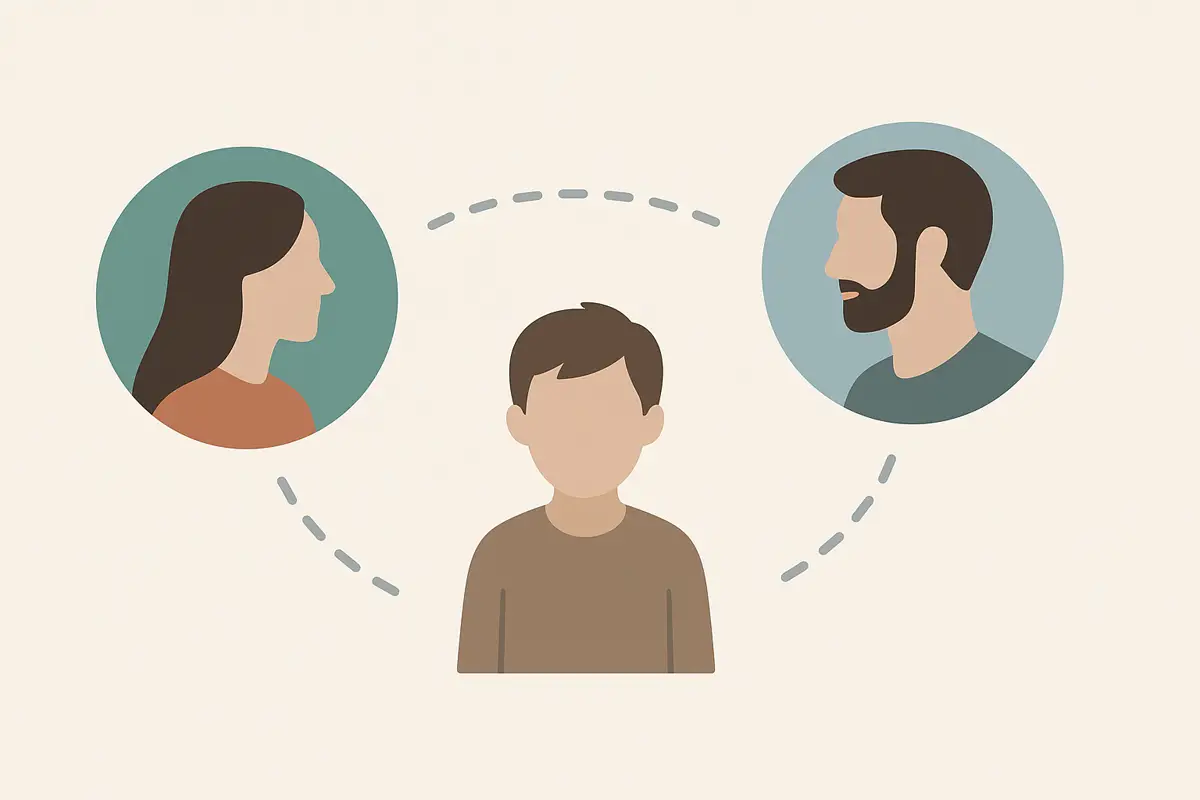Legal Considerations for Parents Going Through a Breakup

Ending a relationship is rarely straightforward, and when children are involved, there are added legal and practical questions to consider. For parents, separation isn’t just about moving on from a partner – it’s also about setting up new routines and responsibilities around childcare. If you’re in the process of divorcing or ending a long-term relationship – or seriously thinking about it – there are a few legal issues to be aware of. Family law in England and Wales covers several key areas when parents separate. These include parental responsibility, child arrangements, financial support and how disputes are handled.
This guide outlines the legal considerations for parents during a breakup, with a focus on practical steps and clear explanations to help you make decisions in your child’s best interests.
Parental responsibility: who has it and how it works
Parental responsibility is a legal concept that describes the rights and duties a parent has towards their child. These responsibilities include making decisions about where the child lives, which school they attend, their medical care and their religious upbringing. Anyone with parental responsibility has a legal right to be involved in decisions that affect a child’s welfare.
Birth mothers automatically have parental responsibility from the moment their child is born. Fathers also have it if they were married to the mother at the time of the birth, or if they are listed on the birth certificate of a child born on or after 1 December 2003 in England and Wales. If an unmarried father is not named on the birth certificate, they do not have parental responsibility by default – but it can be obtained.
There are two ways for a father in this situation to gain parental responsibility:
- By agreement – through a Parental Responsibility Agreement signed with the child’s mother.
- Through the courts – by applying for a Parental Responsibility Order.
Without parental responsibility, a parent may still have contact with their child, but they will not have the legal authority to make or influence key decisions. For this reason, unmarried fathers without parental responsibility are encouraged to consider formalising their legal rights – particularly if they want to be involved in long-term care planning after separation.
Making child arrangements: informal agreements and court orders
When parents separate, decisions must be made about where the child will live, how much time they spend with each parent and how day-to-day care is shared. In some cases, parents can agree arrangements themselves. These informal agreements, often supported by parenting plans, can work well when communication remains open and both parties are willing to cooperate.
However, where disagreements arise or where trust has broken down, it may be necessary to apply for a legally binding Child Arrangements Order from the family court. This type of order replaces what used to be called ‘custody’ or ‘access’ and sets out:
- Whom the child lives with.
- When and how they spend time with the other parent.
- How other forms of contact (such as phone or video calls) will be managed.
Either parent can apply for a Child Arrangements Order. In some circumstances, grandparents, guardians or other individuals with a meaningful role in the child’s life may also be able to apply, although they may need permission from the court first.
The court’s primary concern will always be the welfare of the child. Factors considered include:
- The child’s physical, emotional and educational needs.
- The effect of any changes in their circumstances.
- The child’s wishes (depending on their age and maturity).
- The ability of each parent to meet the child’s needs.
Before applying for a court order, most parents are expected to attend a Mediation Information and Assessment Meeting to explore whether the issue can be resolved without court proceedings. If mediation is not suitable or fails to produce an agreement, the matter can proceed to court.
Managing financial support and living arrangements
Children are legally entitled to financial support from both parents, regardless of where they live after a separation. If parents cannot agree on how much support should be provided, they can use the Child Maintenance Service (CMS) to calculate and manage payments. The CMS uses a formula based on the non-resident parent’s income and the amount of time they spend with the child.
While the CMS deals specifically with child maintenance, separating parents may also need to reach financial agreements about housing, school fees or additional costs related to the child’s health and education. If these arrangements cannot be agreed informally, financial matters may be addressed through court orders as part of divorce or separation proceedings.
It is also worth considering future planning. For example, if one parent is planning to relocate – either within the UK or abroad – they may require consent from the other parent or the court, especially if a Child Arrangements Order is already in place. Failing to obtain proper consent can lead to legal consequences.
Legal rights of step-parents and other carers
Step-parents and other adults who take on a parenting role do not automatically have parental responsibility. Even if a step-parent lives with the child and supports them on a day-to-day basis, they do not have legal authority unless they acquire it formally.
Parental responsibility can be granted to a step-parent either by:
- A formal agreement in writing with all individuals who already hold parental responsibility, or
- Applying to the court for a Parental Responsibility Order.
The latter step is often taken in blended families to formalise the role of a step-parent, especially where they are involved in medical decisions, schooling or travel abroad. It is not uncommon for more than two individuals to hold parental responsibility for the same child at the same time.
When court involvement becomes necessary
The family court generally encourages parents to resolve disputes through communication and mediation. However, if this proves unworkable, the court can make decisions about child arrangements, financial matters, and other specific issues.
For example, a parent may apply for a:
- Specific Issue Order – to resolve a particular question, such as which school the child should attend.
- Prohibited Steps Order – to prevent the other parent from making certain decisions without agreement, such as taking the child abroad.
Court proceedings can be time-consuming and emotionally draining, which is why they are often treated as a last resort. Nevertheless, they play an important role in situations where children are at risk, where communication has broken down or where urgent clarity is needed.
Seeking legal guidance
Understanding your legal rights and responsibilities as a parent is vital during a breakup. While the court process is designed to protect children, it can feel overwhelming to adults – especially when emotions run high and communication is strained. Accessing legal guidance early on in your breakup can help you understand the likely outcomes, and help you make decisions that protect your relationship with your child over the long term.
If you need help understanding how parental responsibility works or what steps to take when informal arrangements aren’t working, speaking with experienced family law solicitors can be a valuable first step.










